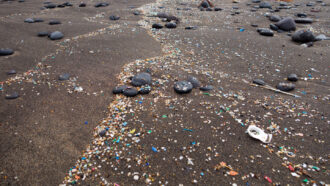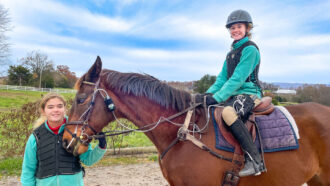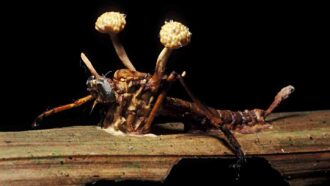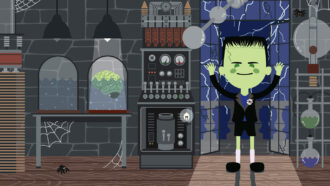
Maria Temming
Assistant Managing Editor, Science News Explores
Maria Temming is the Assistant Managing Editor at Science News Explores. Maria has undergraduate degrees in physics and English from Elon University and a master's degree in science writing from MIT. She has written for Scientific American, Sky & Telescope and NOVA Next. She’s also a former staff writer at Science News.

All Stories by Maria Temming
-
 Brain
BrainScientists Say: Glymphatic System
The glymphatic system bathes the brain in cleansing fluids during sleep and clears away harmful cellular waste.
-
 Math
MathScientists Say: Mean, median and mode
Mean, median and mode are all different ways to describe the middle value in a dataset.
-
 Materials Science
Materials ScienceLet’s learn about microplastics
Microplastics have turned up everywhere from the highest mountains to the bottom of the ocean — and even inside animals and people.
-

-
 Psychology
PsychologyWhy fandom feels good — and may be good for you
Psychologists and media scholars are looking into the who, why and how of becoming a fan.
-
 Physics
PhysicsScientists Say: Neutron
Neutrons are one of the main building blocks of atoms and have no electric charge.
-
 Tech
TechHow to turn your hobby into a seriously cool science project
This year’s Broadcom MASTERS finalists were inspired by their love of painting, horseback riding and other pastimes.
-
 Animals
AnimalsLet’s learn about parasites that create zombies
Some parasites turn their victims into mindless puppets that do the parasites’ bidding, even at the cost of their own lives.
-
 Earth
EarthScientists Say: Pole
A pole is either of two opposite ends of a molecule, magnet, battery, planet or other object.
-
 Science & Society
Science & SocietyWhat’s the fun in fear? Science explores the appeal of scary movies
On its face, the appeal of horror doesn’t make much sense. But scientists are starting to uncover who’s most likely to enjoy scary films and why.
-
 Plants
PlantsScientists Say: Fruit
Some foods usually called vegetables — such as tomatoes, cucumbers and peppers — are actually fruits.
-
 Life
LifeLet’s learn about modern Frankensteins
Modern scientists are creating strange new combinations of living tissue and trying to give dead things new life.